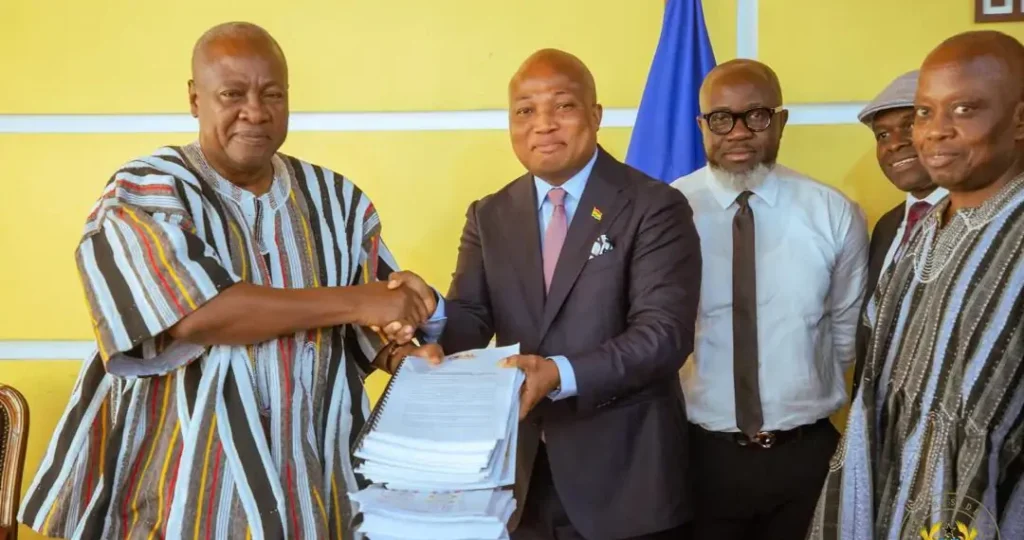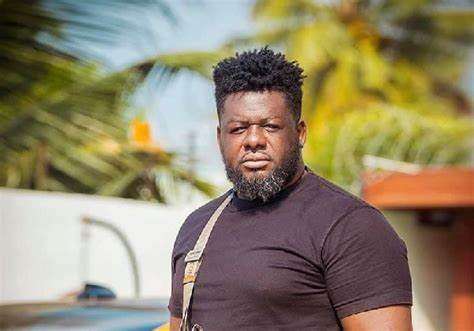President Mahama as part of his Operation Recover All Loots (ORAL) Initiative has directed the Attorney General to begin investigations into all suspected corruption cases submitted. The former Deputy Attorney General Alfred Tuah-Yeboah in response to this move by the President, has raised critical concerns about corruption investigations and the processes involved in recovering stolen state funds.
Speaking on the matter, he emphasized the importance of gathering concrete evidence rather than relying on speculation or numerical estimations of potential recoveries. Tuah-Yeboah dismissed the notion that mere allegations or rumors could form the basis for meaningful legal action.
According to him, accusations alone do not amount to actionable cases. He asserted that in past corruption discussions, people had peddled numerous claims, but when it came to substantiating them with evidence, many withdrew or failed to provide necessary proof.
Addressing the report submitted to the president regarding corruption cases and potential financial recoveries, Tuah-Yeboah admitted that he had not yet reviewed the document. However, he expressed;
“I don’t know the evidence that the [ORAL Committee] have in support of all those things that they’ve been spewing out. But when we get the report with core evidence, then perhaps we can make a very meaningful and insightful discussion.”
Alfred Tuah-Yeboah Former Deputy Attorney General
Meanwhile, with the work done so far by the anti-Corruption Committee, they have quantified the sort of money that the state would retrieve back when the said reported cases are investigated properly. He charged;
“… talk is cheap. Quantifying and putting figures together is cheap. Making the public know that the nation will be receiving close to 21,000,000,000 is cheap. Anybody can do it. But the key question is, let’s give ourselves the next six, seven months and see if you can recover the amount or whatever amount we need to recover within the next six months or one year.”
Alfred Tuah-Yeboah Former Deputy Attorney General
The Role of the Attorney General in Investigations
Tuah-Yeboah clarified the role of the Attorney General in corruption cases, pointing out that the AG does not conduct investigations but rather assesses dockets submitted by investigative bodies.

He emphasized that it is after state institutions like the Police Service, and EOCO complete their investigations, that the Attorney General’s Office would then examines whether the evidence presented is strong enough to support a successful prosecution. He questioned why corruption cases were still being directed to the Attorney General rather than the OSP. He suggested that those who claim to have evidence of corruption should submit their cases directly to the OSP for further action.
Tuah-Yeboah expressed concerns about the current approach, where all corruption cases are directed to the Attorney General instead of the OSP. He argued;
“If you are talking about corruption, then from the legal [criteria] that we have now, I was thinking that the committee that has come up with this would have said, oh, we are just [whistle] blowers as they kept saying. This is what we have, we are submitting our complaints to the OSP.”
Alfred Tuah-Yeboah Former Deputy Attorney General
He suggested that the President should have referred corruption-related cases to the OSP, allowing the appropriate state institution to investigate and prosecute accordingly. Tuah-Yeboah warned against reverting to past practices where the Attorney General was solely responsible for all corruption-related prosecutions, emphasizing that this would be a step backward.
Alfred Tuah-Yeboah’s remarks highlight deep concerns about Ghana’s approach to corruption investigations and the effectiveness of the recovery process.
While he criticized the reliance on speculation, he questioned the role of the Attorney General in handling corruption cases and called for the Office of the Special Prosecutor to be actively involved in corruption prosecutions.
His statements emphasize the need for concrete evidence, proper investigative processes, and a more efficient approach to corruption cases in Ghana.
READ ALSO; Record Labels Crucial in Winning a Grammy



















